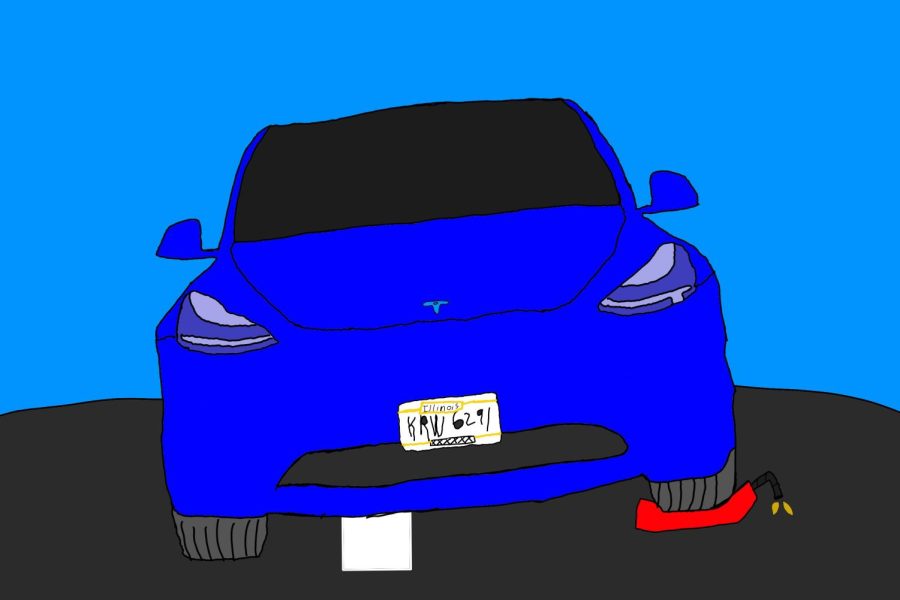Electric vehicles prove necessary in cutting carbon emissions
Have you been noticing more electric cars on the road recently? This is no surprise, considering that, according to Automotive News, “Electrical vehicle registrations shot up a huge 60 percent.” This statistic will continue to increase in the upcoming years as states turn away from selling gas-powered cars.
According to The Harvard Gazette, “California regulators passed rules banning the sale of new gas-powered cars by 2035.” Californians will still be permitted to purchase used gas-powered cars within the state, as well as gas-powered cars in other states; nonetheless, these new laws are an extremely significant step toward changing “how Americans drive in response to climate change.” In addition to California’s ambitious plan, at least 13 other states have followed California’s lead by creating a less strict plan to curb the emissions created by gas-powered cars, many of which are planning to adopt the ban as well.
How do these plans “affect the economy?” Contrary to popular belief, states’ shift towards greener cars actually coincides with the auto industry’s transition to zero-emission automobiles.
“At Ford, combating climate change is a strategic priority, and we’re proud of our partnership with California for stronger vehicle emissions standards,” says Ford Motor’s chief sustainability officer Bob Holycross? By implementing their environmentally-friendly plans, states are simultaneously supporting auto industries and combating climate change.
Taking action against gas-powered vehicles is important as they are the largest contributor to emissions in the United States. According to the Environmental Protection Agency, “The United States alone is responsible for 1.7 billion tons of CO2 released into the atmosphere from the tailpipes of gas-powered cars.” In addition, Canada’s National Observer’s data concludes that “gas-powered cars produce even more CO2 and climate pollution than coal-burning power plants.”
Your donation will support the student journalists of Saint Viator High School. Your contribution will allow us to purchase equipment and cover our annual website hosting costs.








